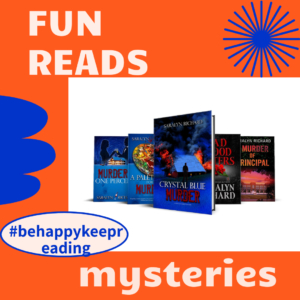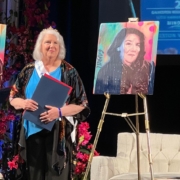Love-Hate Relationship with English Grammar by Saralyn Richard
Love-Hate Relationship with English Grammar
by Saralyn Richard

Photo by Brett Jordan on Unsplash
I taught high school English for many years in the days when students had to write ten mandatory papers per quarter, or forty papers per year. According to my estimates, I’ve graded over seven thousand papers, not counting major assignments, where I graded several drafts of the same paper. I graded papers day and night in every location you can imagine. With all that practice, I became a walking encyclopedia of grammar, able to recite every rule, chapter and verse.
Here are a few of the most common mistakes my students made:
- Run-on sentences or comma splice
- Pronoun disagreement
- Mistakes in apostrophe usage, especially possessives
- Lack of subject-verb agreement
- Misplaced modifiers
- Sentence fragments
- Verb tense inconsistency
- No clear antecedent for a pronoun
When my son was in ninth grade, his English teacher offered five points extra credit whenever a student could find a mistake in the “real world,” take a photo of it, get the person in charge to change it, and photograph the correction. You wouldn’t believe how many errors came to light. My son even had the local park district take down and redo a huge sign at the entrance to a nearby subdivision, costing taxpayers approximately nine hundred dollars.
Today we have online (AI-based) grammar tutors, and we are still plagued with grammar infractions everywhere we go, including in edited and published media. As a reader, I find mistakes distracting, but I no longer carry the weight of responsibility for marking each one in red ink and making sure the writer knows better for next time.
As a writer and editor, I’m not let off the hook so easily. While I recognize there is no such thing as a perfect piece of writing, I can’t let go of wanting anything with my name on it to be as clean as possible. For me, an error-free, clearly stated, well-ordered paragraph practically sings from the page.
How about you? Do you have a love-hate relationship with English grammar, too?

Saralyn Richard is an educator and the writer of six mystery novels and a children’s book. Connect with her at http://saralynrichard.com and subscribe to her monthly newsletter for interesting and fun content and opportunities.









There are so many grammar rules that I can’t remember, my general rule of thumb is, if it doesn’t interrupt my reading flow, it works for me. As a result, I rarely catch errors in something I’m reading.
I try to catch the errors in anything I write before it goes out. And I always think I do. It’s only later, sometimes much later, that I catch something major that I missed.
Sounds like you’re in a good place with regard to grammar and your writing! Thanks for commenting.
Saralyn,
I love the photo of you with the painting of you!
I find grammatical errors very distracting, though I know I make plenty when I’m writing fast!
Kathryn
Thanks for reading, commenting, and complimenting, Kathryn!
I had a martinet of a grammarian as an English teacher in 7th and 8th grade. She drummed proper grammar into us by banging a yardstick on the blackboards that lined two walls of the classroom. Rumor had it she even broke at least one blackboard once. Those rules have stuck with me to this day, though, even the obscure ones. I wonder how many people besides me know that it’s either “the two of us” or “both of us,” never “the both of us.”
Mine was Ms. Warner! She pounded the blackboard, too. That must have been “the thing” back in the day.
I suppose it was better to take their frustrations out on the slate than the students!
Sometimes I have to laugh when I catch myself correcting the grammar of newscasters. “Him and me,” one might say, and I correct them and say out loud, “He and I.” As if they can hear me.
Keep putting those corrections into the stratosphere! Someone needs to stick up for the English language!
I was brought up to be a grammar nut (I love diagramming). Like you, I cringe when I see obvious mistakes.
I love the term, “grammar nut.”
Guilty. I must have missed class the day we learned commas and it has haunted me my whole life. I also love the picture of you with your portrait! Nice post!
Thanks for the compliment. I’d be glad to coach you on commas, if you’d like.
Saralyn, I can’t even imagine how hard that was to read repetitive works from your students. Do you dream about correct grammar? I’m curious about AI. Since it learns from humans, is it being taught correctly or is it throwing bad after bad. I know, I am not a fan of AI. Great post.
Thanks, Donnell. I, too, am concerned about AI. The old saying, “Garbage in, garbage out,” fits.